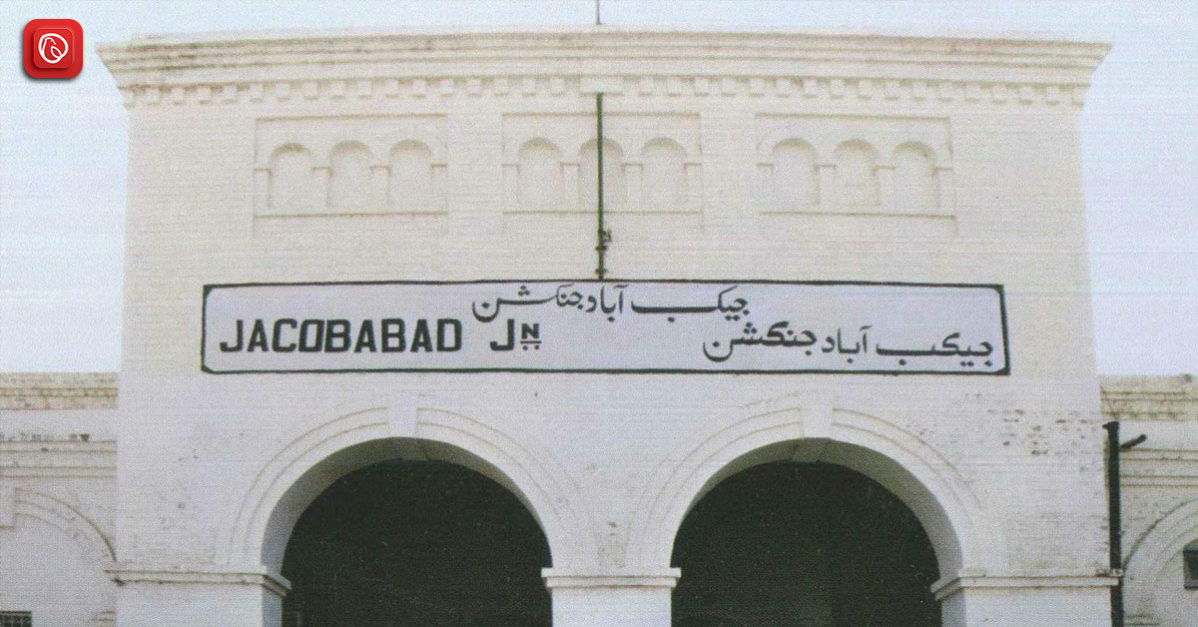
The city is in the north of Sindh province, Pakistan. Jacobabad is a city renowned for both its rich history and its reputation as one of the hottest places on Earth. This blog delves into the essence of Jacobabad, exploring its captivating past, scorching present, and potential future. Graana.com will navigate through the city’s vibrant culture, top places to visit, prominent figures, educational institutions, and healthcare facilities, and explore how to reach this unique destination.
| Category | Description |
| Location | Jacobabad, Sindh, Pakistan |
| Population | 1.2 million |
| Climate | Extreme heat, with summer temperatures exceeding 40°C (104°F) and peak highs over 50°C (122°F). |
| History | Founded in 1847 by General John Jacob, served as an administrative centre during the British Raj. |
| Significance | A major transportation hub, and gateway city to Baluchistan. |
| Postal Code | 79000 |
| Distance to Major Cities | Sukkur: 75 km (47 miles), Karachi: 548 km (340 miles), Islamabad: 1100 km (684 miles) |
| Top Places to Visit (Jacobabad District) | Indus River, Gorakh Hill Station, Wildlife Sanctuaries (Hamal Lake, Kirthar National Park) |
| Things to Do in Jacobabad | Explore local markets, Sample Sindhi cuisine, Witness a Balochi dance |
| Famous People | Sain Sachal Sarmast (Sufi saint and poet), Ghulam Mustafa Khan (politician and diplomat) |
| Top Colleges | Government Boys Degree College, Government Girls Degree College, Cadet College Larkana (Jacobabad Campus), SZABIST Jacobabad Campus |
| Hospitals | Civil Hospital Jacobabad, Baluchistan Medical College Teaching Hospital, Private clinics and hospitals |
| How to Reach Jacobabad | Fly into Sukkur International Airport (SKZ), Take train via Jacobabad Junction Railway Station, Travel by car or bus on national highways |
| Challenges | Extreme heat limited economic opportunities. |
| Opportunities | Climate change adaptation, sustainable tourism development, education and training. |
| Best Time to Visit | Cooler months (November to March). |
| Accommodation | Developing tourism industry, hotels and guesthouses available. |
Founded in 1847 by General John Jacob, Jacobabad boasts a history intertwined with the British Raj in India. Originally named Khan Garh, the city served as the administrative headquarters of the Upper Sindh Frontier District during British rule. After independence, Jacobabad continued to play a significant role as a major transportation hub, strategically located at the crossroads of several key national highways.
This district is comprised of 44 Union Counsils and has 3 Tehsils.
Jacobabad is notorious for its extreme weather conditions. Summer temperatures routinely soar above 40°C, with peak highs exceeding 50°C. Coupled with high humidity, these scorching temperatures pose a significant health challenge for residents.
Jacobabad serves as a crucial gateway city bordering the Baluchistan province. Many travellers use Jacobabad as a stopover point before venturing further into the captivating landscapes of Baluchistan.
| Area Name | Postal Code |
| Jacobabad GPO | 79000 |
| Ammunition Depot Kashmore | 79212 |
| Buxapur | 79190 |
| Garhi Khairo | 79050 |
| Ghouspur | 79180 |
| Ghulam Khan Dhani | 79130 |
| Giddu Barrage | 79220 |
| Kandhkot | 79160 |
| Kashmore Colony | 79210 |
| Kashmore | 79200 |
| Mirpur Buro | 79120 |
| Tangwani | 79150 |
| Thul | 79100 |
The distance of Jacobabad from the major cities of Pakistan is listed below:
While Jacobabad itself might not boast numerous tourist attractions, the surrounding district offers a hidden gem or two:
Jacobabad’s charm lies not just in its geographical location but also in its vibrant culture and resilient spirit. Here are some ways to experience the city beyond the scorching temperatures:
Several prominent individuals hail from Jacobabad, making their mark in various fields:
Education plays a vital role in Jacobabad’s development. Here are some of the top colleges catering to the educational needs of the region:
Jacobabad faces significant challenges, primarily due to its extreme climate and limited economic opportunities. However, there’s also potential for growth and development:
The city boasts several healthcare facilities to cater to the medical needs of its residents:
The strategic location of this city makes it easily accessible by various means of transportation:
Here is the list of most asked questions about this historic city.
The city is known for its scorching temperatures and its rich history. It’s one of the hottest places on Earth, experiencing extreme heat during the summer months.
The city is infamous for its extreme temperatures. Summer highs routinely exceed 40°C, with peak temperatures reaching over 50°C. The high humidity levels further exacerbate the heat, making it a challenging environment for residents.
The cooler months, from November to March, offer the most comfortable time to visit the city. Temperatures are more manageable, allowing you to explore the city and its surroundings without battling the scorching heat.
Jacobabad’s strategic location makes it accessible by various means of transportation. You can fly into Sukkur International Airport and then take a taxi or bus. Alternatively, trains connect the city to other parts of Pakistan, or you can travel by car or bus on the national highways that intersect the city.
You can explore the Indus River, visit the scenic Gorakh Hill Station for a break from the heat, or venture into wildlife sanctuaries like the Hamal Lake Wildlife Sanctuary or Kirthar National Park.
For more details visit Graana blog.
Islamabad: Chairman of the Capital Development Authority (CDA), Muhammad Ali Randhawa, chaired a high-level meeting…
The 19th Real Estate Development Summit Saudi Arabia – Luxury Edition concluded after two days…
Islamabad: The Shaheen Chowk underpass is expected to be inaugurated next week after nearing completion,…
Dubai’s luxury real estate market has reached a new milestone in 2025, with a prime…
Karachi: Sindh Chief Minister Syed Murad Ali Shah has approved a development package worth PKR…
Islamabad: The Capital Development Authority raised PKR 13.52 billion on the opening day of its…